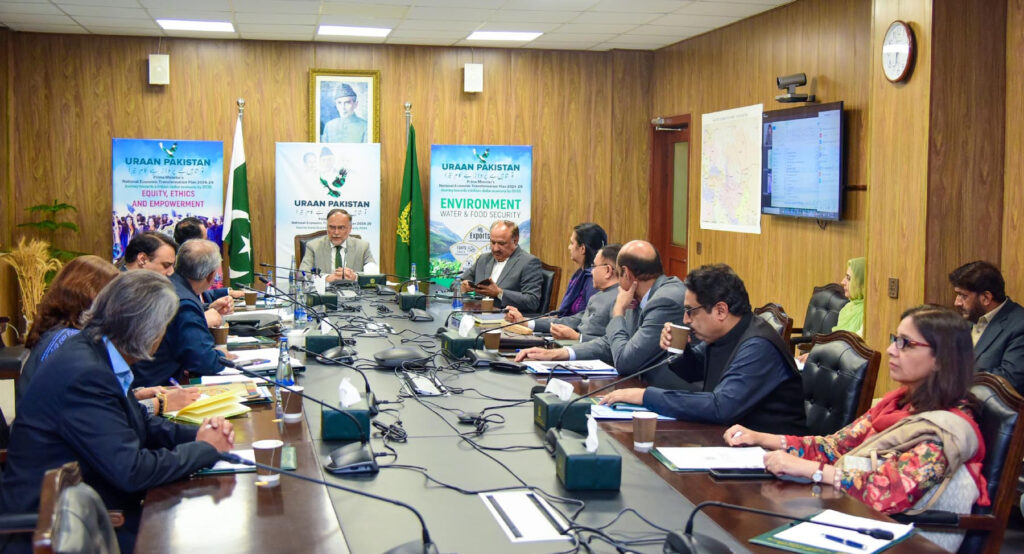PAKISTAN
Federal Minister Ahsan Iqbal has emphasized the urgent need to expand occupational groups in technical fields, including engineering and information technology, to build a strong professional base within the civil service for addressing technical challenges.
According to an official communication shared with the media, Federal Minister Ahsan Iqbal chaired a meeting of the Civil Services Reform Committee, established by Prime Minister Shehbaz Sharif, to discuss a comprehensive restructuring plan aimed at transforming Pakistan’s bureaucracy to meet contemporary challenges.
The meeting was attended by senior officials from key ministries, including the Ministry of Planning, the Economic Affairs Division (EAD), and representatives from the Cabinet Secretariat.
During the discussions, the committee endorsed the introduction of a cluster-based system for restructuring, highlighting the importance of addressing challenges related to inducting professionals into the public sector.
Minister Iqbal noted that many public sector officials lack the necessary skill sets to meet the demands of their roles amid changing times. He stressed the need to adopt best practices from the corporate sector to bridge this gap and enhance efficiency within government institutions.
He also pointed out the severe shortage of technical professionals across various ministries, emphasizing that addressing this deficit is critical to ensuring that public sector organizations have the necessary expertise.
Furthermore, Minister Iqbal questioned the current requirement of English as a compulsory subject for entry into the civil service. He argued that many talented students are excluded from the Central Superior Services (CSS) exam due to failing the English language paper.
“If English were the defining criterion, then our civil service should have been the best-performing in the world,” he remarked. “We have used English as a tool of discrimination against the common citizen and the majority of the population.”
To promote inclusivity and national identity, Minister Iqbal proposed that Urdu should also be offered as a compulsory subject choice for the CSS exam. This, he stated, would help elevate Urdu as the national language while ensuring a more inclusive recruitment process.
Concluding the meeting, Minister Iqbal emphasized the need to rethink the civil service model established in 1973 in light of modern realities.
“We must break the barriers of self-preservation within the system,” he stated. “Citizens today are far more informed and empowered, and they expect higher levels of service delivery. We need a civil service that is agile, proactive, performance-focused, and responsive to new realities.” — Engineering Review

